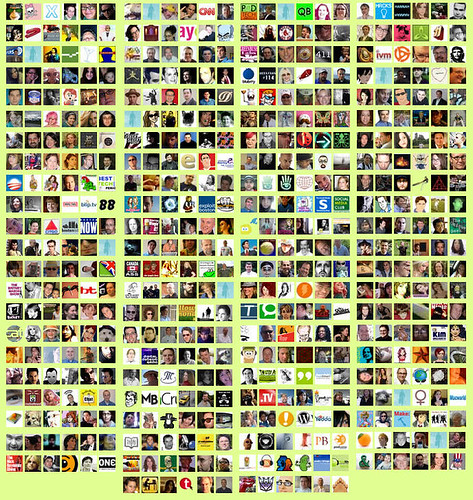Your Company Could Own Your Tweets
 Social media is the bread and butter of customer relations management and there's no doubt that for companies, employees who communicate well online hold a certain cache.
Social media is the bread and butter of customer relations management and there's no doubt that for companies, employees who communicate well online hold a certain cache.
Any personal blog or website you have could be owned by the boss and the trouble lies where personal and work collide and whether blogging takes place in the office or at home.
If your blog mentions company-related news, who owns the rights to it, will be difficult to ascertain. In theory, working for a prominent organisation and mentioning their developements within your personal site is treading on terra-infirma. Should the site become successful, things get even more complicated. Once revenue is involved who gets a share of the profits?
It's the same thing with Twitter. If you have over a million followers, work for a high profile organisation and frequently mention work developments in your tweets, things get complicated. Followers are there for the company news just as much as personal updates and there's a case to be made for riding on company coat-tails to boost an online presence.
A case in point: Cisco CTO, @padmasree
Padmasree is on theTwitter suggested user list, has as much personal info as Cisco stuff on her stream and over 1,200,000 followers. If she were to leave the company does she take the account with her? Does it belong to Cisco? Cisco insist that the account belongs to her and if she decides to leave the company it goes with her.
It comes down to three things, contract, copywright law and piracy.
Contract Law
Intellectual Property, created during employment, could be the property of the company. This includes tweets, blogs and Facebook pokes. New media law is so new that it hasn't really kept up with the technology.
Copyright law
Blog hosting sites offer terms of service which you must agree too - the user is the author and owns the copyright in the blog post/tweets. The user grants a perpetual free license to the blog host for using the content.
When the company owns the blog a shared license is possible. For the blogger - ensuring they're always credited as the author, by using trackbacks, is key to everyone getting what they want.
Policy Aspect
Policy differs between firms - some are averse to having their employees thoughts published online for the world to see, some welcome corporate blogging. Where it's beneficial to the company they should embrace the benefits but policy differs from company to company.
Unfortunately the law has been slow to evolve in addressing challenges often associated with social networking leaving many HR departments uncertain about how best to tackle the issue. When the legislation was passed, there was no chatter about social media let alone blogging, tweeting and their ilk.
If you're worried about falling foul of the boss investigate your existing employment contract and contact a lawyer to give you some advice.
It's worth keeping a beady eye on any employment contracts that you sign, checking the scope of any intellectual property clauses. Having those restricted to the scope of your jon duties should prevent companies from staking claims to your social media output.
As always with matters legal, you can't beat a bit of lawyer-time to make sure.


